In what some might call “an embarrassment of riches” I have
been enjoying three books in the last few weeks by three of my favorite non-fiction
authors. I will soon tell you about the new Os Guinness (The Global Public Square) and in our most recent BookNotes post I raved about the splendid and important The Case for the Psalms by N.T. Wright. (He recently wrote to us, saying that he very much liked the tag-line that was in a HarperOne ad: “What Would Jesus Sing?” Indeed.) And — hooray! — the much-anticipated follow-up to Andy Crouch’s excellent Culture Making, entitled Playing God: Redeeming the Gift of Power arrived just today from IVP! So, we’ve got Guinness, Wright, Crouch and the new Jamie Smith book about which I will tell you now. Forgive me if I am a bit exuberant this month – you can call me
pushy if you want: it’s my job to convince you to buy these extraordinary volumes
from us (at the BookNotes 20% off, of course.) And, like last week’s
review of The Case for the Psalms, this week I can assure you without hesitation that
this brand new book by James K.A. Smith is fantastic and one you will want. It is both informative and fun to read; you will
enjoy turning the well-written pages which are full of great turns of phrases and fine vocabulary and you will — I guarantee it — be
challenged with good, new content that will help you live your life more thoughtfully in a way that I suspect you truly want.
D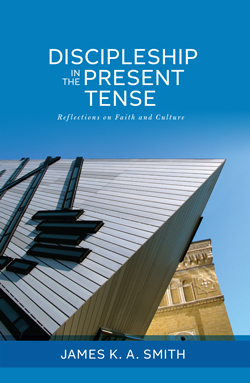 iscipleship in the Present Tense: Reflections on Faith and
iscipleship in the Present Tense: Reflections on Faith and
Culture by James K.A. Smith (regularly $14.00 but on sale here at 20% off; $11.20) is published by a small academic publishing venture, The
Calvin College Press. We have all the
other books in their small backlist catalog, but this new James Smith collection is without a doubt the
most important book they’ve yet done. The author is one that Hearts & Minds fans should know. He is considered to be one of the premier Christian public intellectuals
of our time. His stunning, and
very widely discussed Imagining the Kingdom and Desiring the Kingdom are
perhaps his “break out” books that catapulted him to a wider audience, but he
has been writing about culture, philosophy, science, faith, hermeneutics, Pentecostalism, the common good, and other topics at the interface of faith, scholarship, and culture, for more two
decades and has a slew of books to show for it.
Indeed, his first major
book – The Fall of Interpretation: The Philosophical Foundations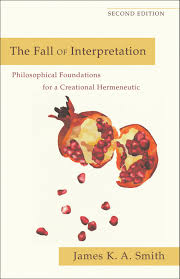 for a Creational Hermeneutic – was a major contribution in the hey-dey of
for a Creational Hermeneutic – was a major contribution in the hey-dey of
evangelical conversations a decade or so ago around postmodernism (and it was happily expanded and reissued last year by Baker Academic.)
That Smith studied Dooyeweerd and Vollenhoven with scholars at Toronto’s
Institute for Christian Studies (ICS) and had his cultural discernment honed there by the
likes of Brian Walsh, James Olthius, and Calvin Seerveld and Al Wolters comes through
in that early book, making the case (in Augustinian terms) that human limitation and
perspective (what common folk might call bias) is not bad, a part of the fall,
but a natural, good part of God’s intended creational make-up of how humans see and make meaning. There is no raw data but always interpretation. This is hugely significant when we talk
about interpreting of the Bible, about relativism, about truth and tradition and so
forth.
Anyway, he’s a post-modern philosopher
philosopher
who reads culture and theology, continues to call himself a Pentecostal (and
likes NASCAR and Canadian hockey alongside his high-brow literature and fine wine.) His first collection of short pieces
was published by Eerdmans in 2009 and is a tremendous anthology with essays on what Calvinists
can learn from Pentecostals, on why he doesn’t particularly like the Christian
left, on why colleges should not refer to students as customers, and other fascinating
ruminations on church, politics, education, and the arts. That one is called The
Devil Reads Derrida and Other Essays… and we highly
recommend it. Although all of it
is smart, most of it is not about French philosophy.
This new Calvin College Press anthology, Discipleship in the Present Tense is not unlike that first collection
but it is, I believe, even more interesting, a bit more varied, and arranged in a
more coherent, helpful fashion. Jamie (as his friends call him) writes fabulous introductions to each of four sections, and those one-pagers are
themselves wonderfully interesting and inspirational, a great window into how
Smith thinks, and how the book can help us. Really, his explanations before each section show that the book’s delightfully diverse pieces (from essays to book reviews, sermons, letters, interviews) carry out his agenda
of embodying radical discipleship in all of life, shaped, as we always are, by
the habits of the heart, including the formative rituals and litanies that honor the things we most desire
and love. For most of us, the most
durable litanies that have shaped us are those of the (secularized, idolatrous) American Way of Life and our earnest Christian faith is
too often added on to or held within forms and ways of living that have already been decisively shaped by
the idols of the age. How to break
with these distorted ways of living, embedded as we are in particular cultures, trained in certain habits, driven by certain desires? How can our faith be
lived out with integrity and distinction, bearing fruit, even? As this year’s heavy Imagining the Kingdom argues, building on the thesis of Desiring the Kingdom, it has something to do, not least, with worship.
NOT SO MUCH WORLDVIEW…,
It was his intellectual mentors at ICS who first introduced
me to the language of worldview in the mid-1970s and helped many of us examine the “roots of Western
culture” (Dooyeweerd) and “capitalism and progress” (Goudzewaard) and took us a bit beyond the good work Francis Schaeffer was doing in those years, inspired by some of this same Dutch tradition. Not a day goes by that I don’t think of The Transfoming Vision by Walsh & Middleton or Creation Regained by Al Wolters, who were at ICS in those years.
It is now common to
bring critical theological evaluations to late Western capitalism or the ideologies of 18th century Enlightenment views of progress or the habits of 20th century consumerism and the Empire that enforces such dysfunctions. We have good Christian writers 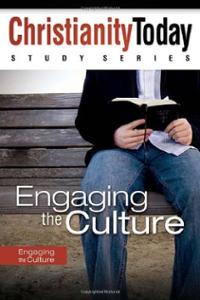 helping
helping
us evaluate the day to day practices of how we use technology, video games and, say, suburban shopping malls or the ways in which we farm and shop and eat, or ways in which we think about the arts and entertainment. To
talk about a “transforming vision” of subverting the empire by seeking Spirit-led newness in our ways of
thinking and doing (guided by reordered loves and prophetic imagination) is not unfamiliar these days. Yep, though all these developments and conversations and new evangelical postures, Smith has been
a major voice – and an ecumenical one, too, as he emphasizes the global and
catholic trajectory of all this reformational energy for robust cultural engagement.
But, as much as he stands in a Dutch neo-Calvinist tradition
that has taught us all about the integration of faith and learning in light of
the presuppositions of our worldviews (he teaches at Calvin College,
in the department where names like Wolterstorff and Mouw and Runner and
Plantinga still echo) he does not use the w-word (worldview, or even weltanschauung) all that much.
The grand
Kingdom project of Professor Smith’s recent books moves us away from idea of worldviews as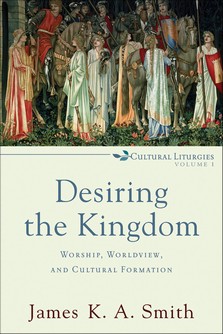
static and intellectual, towards the language of story and something like the “sociology of knowledge.” Such an approach emphasizes social forces,
daily practices, knowing that the plausibility of any sorts of reforming efforts are themselves somewhat determined by the culture and the
institutions we inhabit. (Read his fabulous piece “We Believe in Institutions“ in the recent
Comment for a beautiful example of some of what he means.) Do you know the series published by Jossey Bass by mainline denominational authors on uniquely Christian ways of doing various things in life, launched by the anthology Practicing Our Faith: A Way of Life for a Searching People edited by Dorothy Bass? Mr. Smith thinks along those lines, with a neo-Calvinist / Kuyperian accent, with a large concern about culture, on
steroids. Anyway, embodiment within institutions matter, as we move from worldview to way of life by way of worship. Got it? Yeah, I know: who thinks like this? Smith and company do, and you need his books!
Which is a very long way of saying that this book of short
essays are all of a sort: moving us to think more clearly and talk more helpfully
about what it means to live out a radical sort of discipleship in the here and
now, embodied, daily, mundane, even, always worshipful, joyfully sober, in the world but not of it.
I can name on the fingers of two hands the number of
people I know well who care to – and has the intellectual chops to – really
consider what it means to be faithful in every single area of life. Who view it a joy to ruminate on what grateful obedience looks like in the very texture of our daily lifestyles — in everything! Who are knowingly working out their salvation in ways that could be called Christianly idiosyncratic. And he is one of them, one of the best, or so it seems to me.
So many of us — most Hearts & Minds readers, I’m sure — who reject dualism and
embrace an embodied faith in the midst of a good but fallen creation, wanting
to press the claims of the Kingship of Christ in all spheres and aspect of life
and society intuit (often well) what redemption looks like. Smith does more than intuit and speculate, he thinks hard
and well in 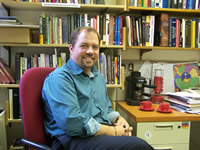 informed and interdisciplinary ways – with feet on the ground, it seems – day by day, about what Kingdom discipleship in this day and age and in this North American society
informed and interdisciplinary ways – with feet on the ground, it seems – day by day, about what Kingdom discipleship in this day and age and in this North American society
actually should be like.
And Smith does this in his writing and speaking with wit and whimsy, without much pride, without overstating his
principles (well, maybe a little) and usually with admirable civility.
He’s no saint – those that follow him on twitter know he can scrapple in the fast-paced world of cyberspace. He’s a scholar with scholar’s
passions and a reformer with Pentecostal zeal. Which makes him a really fascinating (and dare I say entertaining) scholar to follow.
Which brings us to the book.
Discipleship in the Present Tense has an artsy photograph on
the cover which Smith discusses in the opening piece. (True confession: I didn’t care for the cover that much until I read his description of it.) It works very well – as he notes – to illuminate his whole
project, and certainly the theme of the first few essays. The cover photo shows a modern rooftop of what we learn is a famous recent addition to the classy Royal Ontario Museum in Toronto. There is the older, more classically designed wing of the original building in the immediate
background. In an informative and
interesting explanation he tells about the architectural details of both the older and newer designs. (He also shares that he first wanted to major in
architecture, which is why, I guess, he has such a good command of the
specialized language of buildings and cityscapes and is often eloquent on new urbanism and the like.) Although he tells it with a remarkable poignancy, you get the point: one can keep the old building in a stuffy traditionalism and make the new part just like it, or we can
of buildings and cityscapes and is often eloquent on new urbanism and the like.) Although he tells it with a remarkable poignancy, you get the point: one can keep the old building in a stuffy traditionalism and make the new part just like it, or we can
tear it down in a revolutionary project of replacement — away with the old, in with the new!– or, as the photo and
his exegesis of it explains, we can do both, building on the old, in fresh new
ways. Yes, yes, this is it! Smith calls us to be faithful to the
great tradition of apostolic faith as passed down (Jude 3) but insists that we
embody it faithfully in innovative, contemporary patterns. You have heard this before, I hope, but
to explore it in this first chapter is immensely rewarding, and he gets it just right. If you are an old-school
traditionalist or a partisan of the emerging, you may especially need this
radical reminder and I’d invite you to pray and ponder this good introduction. After all, we
all know so well what Marx said about “everything solid melting into air.” Old or new? Both are co-opted and lead to trouble. How about old and new?
Smith says it elegantly and more precisely than I, so we commend it to you. The rest of the book can be read as an
extended conversation on this first chapter, illustrated by the cover art
itself.
STORYLINES
As I said, Discipleship in the Present Tense is arranged in four sections. The first is called “Storylines” and
includes pieces about his own faith tradition, his broad and ecumenical
thinking, always done “in Reformed accents.” (He tells his own Reformed people that some of their
best insights are like “buried treasures” which must be re-discovered. A few of
these pieces may, he admits, seem a bit in-house, written as they were for the
CRC denominational magazine The Banner, for the think-tank Cardus in the amazing magazine he edits, Comment, The Reformed Journal and
Perspectives or for Reformed Worship. (Ahh, he is so good in this part, with shades of Richard Mouw, it seems to me, insisting that to be most catholic, we must be clear about where we are from.
Particularity is always a good thing for Smith, as well it should be.) Whether you, dear reader, are Reformed or
Presbyterian-ish or not, these are thrilling pieces. The first essay which includes a litany of stirring examples of creational
renewal, Christ’s redemption of all things glimpsed in moments of human
flourishing through culture actions that go “along the grain of creation” is
enough to bring tears to one’s eyes.
Who knew God’s great salvation was so very down to earth? Wow, I love this stuff.
Other pieces in this chapter are not just wonderful
reminders of a wholistic, Kingdom vision, they offer exceptionally important
points to consider. Is it really
correct to say “all of life is worship”? How do we talk about worship more
typically understood when one has an all-of-life-is-worship worldview? What does the Bible verse about being a
“peculiar people” really mean? In what ways do rituals shape us? One chapter was a speech given
to commemorate an anniversary of a Christian day school “Learning (by) Stories” and it is thrilling to read — one of the best in the book! Smith is a
good public speaker and this keynote address had insight and energy and kind
words and righteous zeal – all while teaching about education, learning,
knowing, and the role of stories. You’ve got to read it! As with several of these chapters I raised my
hands in praise as I read this, and thought to myself that it was well worth
the price of the book just for this.
BOOKS AND CULTURE
The next section, simple called “Books and Culture” (perhaps a
nod the the splendid literary journal edited by John Wilson, whose blurb graces
the back cover) includes three long book
reviews. Again, these are so
teacherly and wise – they explain the lay of the land of the basic arguments of
the book under examination and its context, the broader conversations going on about the book in
question. As a really good book
review can do, you come away understanding a lot about the book being reviewed
and about other stuff, too. It may make you want to read the book itself, but even if not, you are now equipped to discuss it a bit. Smith
offers his important critical evaluations of To Change the World by James
Davison Hunter, in a piece that first appeared in The Other Journal called “How
(Not) to Change the World. He is
blistering in his critique of D.A. Carson’s Christ and Culture Revisited –
you’ve got to read this, especially if you are a conservative evangelical who
is a fan of DA — and he is (properly) harsh about large misunderstandings and unfair judgements in
the fascinating bit of cultural exploration in Hipster Christianity by Brett McCracken.
BRUSHSTROKES AND LINEBREAKS
The third section is called “Brushstrokes and Linebreaks”
and these are essays and reviews of painters and poets. I had read a few of
these in Comment, I believe, and wasn’t sure I’d enjoy giving them another reading, and two
of these, especially, were very, very nice.
Even if you don’t typically buy poetry volumes, having an astute reader
tell you about what can be appreciated therein is truly quite nice. Also in this section is another “worth
the price of the book” essay, a good (if a bit critical) of William A. Dyrness’
Poetic Theology. That is a
serious, vital book, and Smith does him justice, ruminating on his good arguments
and concerns. Dyrness is
important, and it is amazing to watch Smith in dialogue with him. Anyone working out a Christian
aesthetic theory or artful practice would be wise to pay attention.
LINES OF SIGHT
Fourthly, the last 80 or so pages are gathered under the heading called “Lines
of Sight.” After a fascinating description of a “site lab” at a Grand Rapids art school, Smith writes, “You might think of this section as site-specific. They are occasioned by
specific issues and challenges, and often by specific invitations and
questions, but call for analysis and reflection that transcends their
situation. Sometimes these include from-the-hip responses to current events or
above-the-fold urgencies – which is also why sometimes such writing is brief,
compressed, dashed off to interject in the moment.”
These last pieces are mostly fun and often feisty, sometimes argumentative (as when he takes exception to a Lauren Winner piece) and always offering
value beyond the original location.
These include a lovely, lovely letter to young parents (your children
will break your heart, and you will be overjoyed, still, in gratitude for the
experience of such love), a kindly bit of concern written as an open letter to contemporary “worship leaders” (worth the price of the book if you’ve got a loud rock band preforming worship songs at your church or fellowship) and
a forward which he had written for an academic book on faith and sports. His perspective about what we hope for – on the occasion of
responding on-line to reviews of Rob Bell on hell – surprised me a bit, but was fully
sensible. Yes, if all of life is
to be shaped by Scripture, even what we hope for should be tempered by divine
revelation. In each of these “site specific” pieces,
Smith is a bit curious, offering a gatfly’s bit of provocation or empathy. It’s part of what he does, and it is
good to see these short pieces alongside the more carefully developed ones.
INTERVIEWS
Lastly, there are two good interviews with him. John Wilson suggests that readers start
there, and then dip in at will.
Not bad advice; Wilson writes that the two interviews are “real
conversations, not perfunctory Q&As.”
Because the book has been published by a small, indie press,
it may not find readers as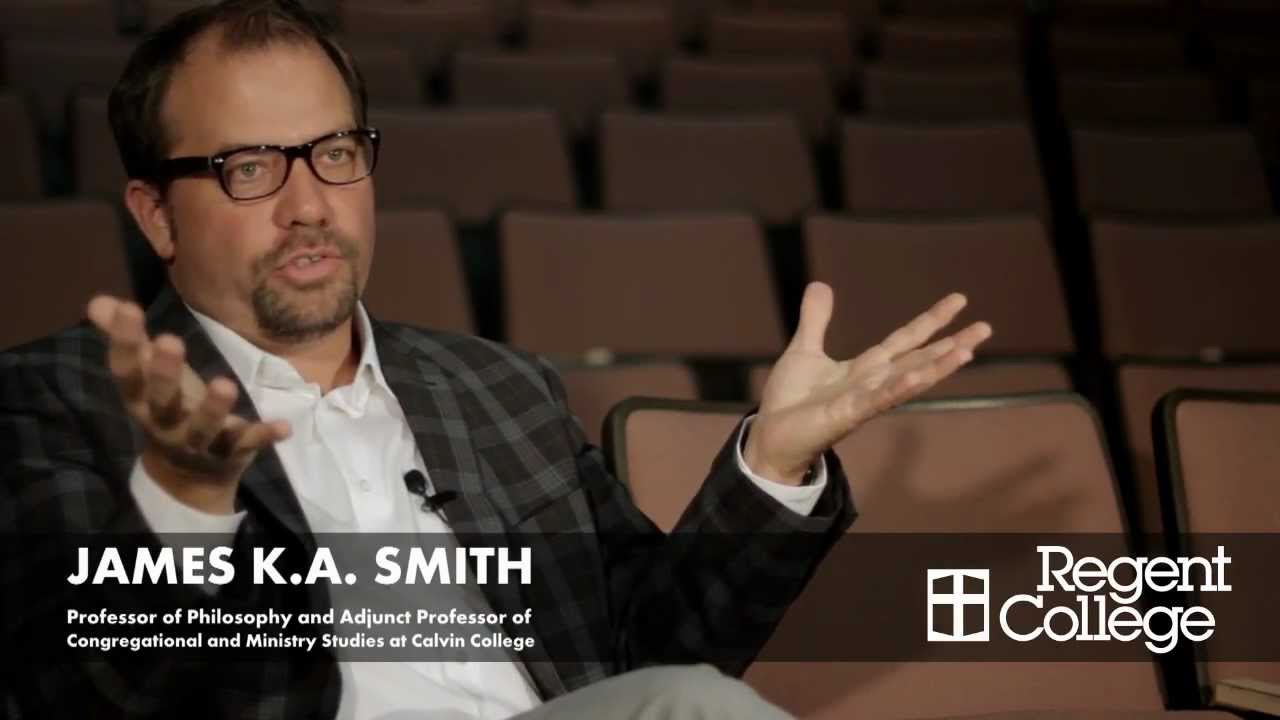 quickly as his other popular books have. Friends, this is where we come in: do
quickly as his other popular books have. Friends, this is where we come in: do
share this review, or tell others about it. Read Discipleship in the Present Tense with others, buy some for gifts, start a study group, suggest it
at your book club. Even though Smith has a large following, this book is under the radar, and it would be cool (and of Kingdom service) if we helped spread the word.
There is no doubt that Desiring the
Kingdom and Imagining the Kingdom are a bit intimidating to some. Who’s Afraid of
Postmodernism? Taking Derrida, Lyotard and Foucoult to Church, while timely, is
a bit much for some. Thinking in Tongues has a small market, those who care about his claim to being a Pentecostal philosopher (may their tribe increase!) His
forthcoming introduction, due in May 2014, to reading Charles Taylor, How (Not) To Be Secular, will
be fabulous, and so helpful, but, again, a bit much for most of us.
I am a huge, huge fan of Letters to a Young Calvinist and
often say it is wise and helpful even if one is neither young nor a Calvinist, but it is pastoral and basic about faith development and under-appreciated.
So, Discipleship in the Present Tense just may be the book to introduce people to
this important public intellectual. The endorsements on the back of it are by upbeat scholars like Crystal Downing
of Messiah College and hip young culture makers like Jonathan Merritt and Gabe
Lyons. There is a sweet and elegant endorsement from Calvin College English
prof Debra Reinstra; Dale Brown of the Frederick Buechner Institute says “The pungent stories told here… provide
an invaluable resource for those interested in finding a way forward that sparkle
with integrity and hard-won faith.”
There is a fabulous rave from a former National Director of the Vineyard
USA. That’s a wide range of recommendations!
My favorite philosopher, David Naugle, says,
I have learned much over the years
from James K.A. Smith. I have
learned much from these fine essays of his. Every one of
them contained many helpful insights.
Smith is a pundit, prophet, provocateur, and public intellectual. All
these attributes are rolled up together in these fine essays.
Allow me to make one final pitch, a homely, practical one. Many of us find it hard to find much time for heavy, sustained reading of long nonfiction works. Short essays and stand-alone chapters are perfect to dip into when you have a few minutes, waiting for an appointment, between laundry loads, to read out-loud over dinner, on the subway, in the bathroom. (There, I said it.) Maybe you aren’t able in this season of life to work through bigger volumes. This is one you can handle, and you will be glad you did. It’s very vocabulary and its wonderful line of vision will remind you of God’s goodness, and how we can be salt and light in a good but hurting world. Won’t you help us get this book known? Order some today, please. We will join you in being grateful for public intellectuals, deep thinkers who serve God’s people, even we who need these sorts of short primers.
DISCOUNT
ANY ITEM MENTIONED
20% off
order here
takes you to the secure Hearts & Minds order form page
just tell us what you want
inquire here
if you have questions or need more information
just ask us what you want to know
Hearts & Minds 234 East Main Street Dallastown, PA 17313 717-246-3333
read@heartsandmindsbooks.com
